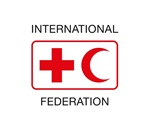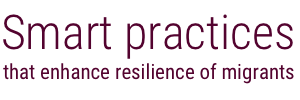Provision of language lessons and employer referrals to help migrants find employment.
The Bulgarian Red Cross offers assistance in finding jobs via an employer referral programme, job seeking support and language lessons for migrants looking to integrate. As of the middle of June 2014, only 19 of 4,600 migrants in Bulgaria had found employment according to official figures. The programme aims to address this issue. Six volunteers from migrant communities, under the supervision of two Bulgarian Red Cross staff members in Sofia, assist migrants to register with the employment office, draft CVs, prepare for job interviews, and secure training. The Bulgarian Red Cross also works to encourage employers to hire migrants, and refers migrants to employers who have expressed willingness to consider them. In addition, the Bulgarian Red Cross offers language lessons to support the integration process. Migrants receive lessons from Bulgarian teachers several times a week.
In Japan, the New Employment Programme of the Japanese Association for Refugees (JAR) has been supporting refugees to find work since 2011. The programme provides job counselling, placement, escort to relevant meetings, on the job training, and culture and language orientation. It also reaches out to companies to encourage refugee employment. Orientations are also provided to companies to teach them how to support refugee employees in integrating, and to address concerns about migrants fitting into the company and their ability to perform. JAR cooperates with Sakae Co., Ltd., whose Director also serves as a trainer. The programme was initially run as a pilot with 11 migrants, but has been re-funded and plans to expand to include 100 beneficiaries and employers.
In 2015, 86 migrants attended language training, of whom 31 found employment through the programme’s matching services.
Design. [P1] Focuses on the need to learn a language and find a job in order to integrate successfully. [P3] Supports the aspirations of migrants to find employment.
Implementation. [P6] Builds partnerships with employers for the benefit of migrants.
- It is difficult to find a large pool of employers willing to employ migrants, because of stigma and their lack of language fluency.
- If given the chance to continue their journey to Western Europe, migrants tend to leave Bulgaria for better opportunities, and leave the programme.
- Include stakeholders from potential employer companies in implementation of the programme, for example by involving them in trainings. This encourages the participation and long-term commitment of both companies and employees.
Smart practices
Smart practices report and database survey
About the report
People migrate in pursuit of a better life for themselves and their families. As described in the International Federation of Red Cross and Red Crescent Societies’ (IFRC) Policy on Migration, “migrants are persons who leave or flee their habitual residence to go to new places – usually abroad – to seek opportunities or safer and better prospects.
Read more
About the International Federation

